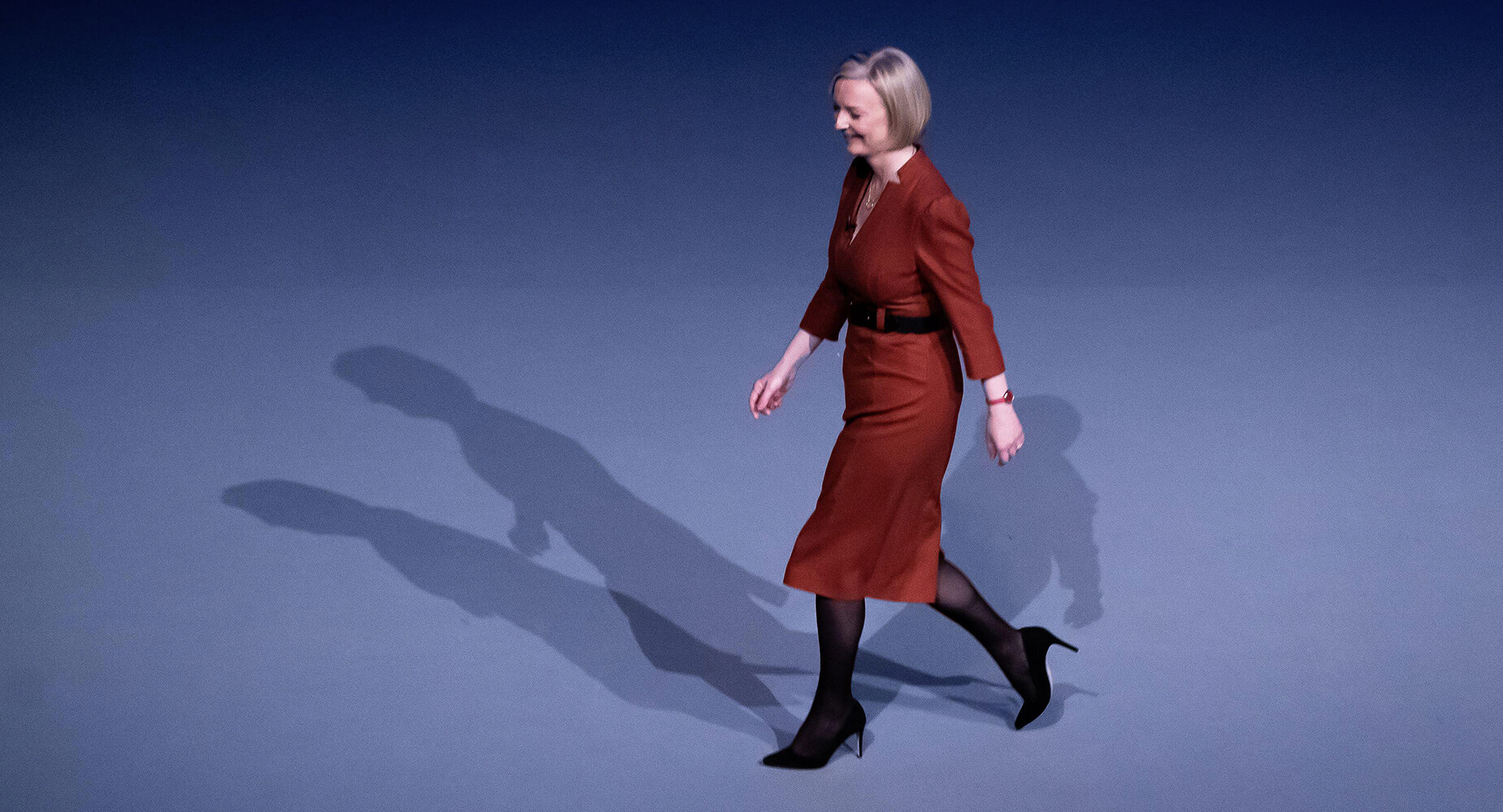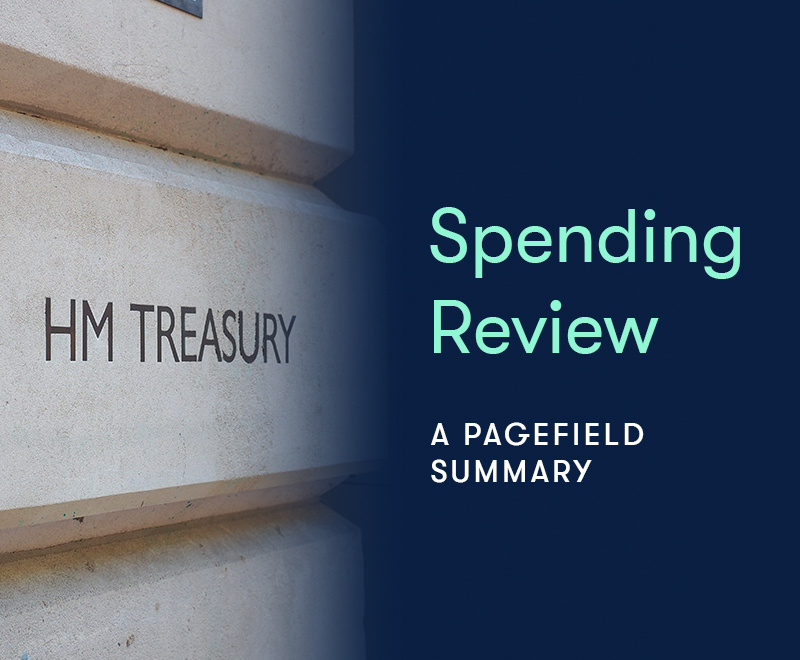After less than a month in Number 10, Liz Truss has already faced more than her fair share of political crises (some of them self-inflicted). This year’s party conference therefore represented an opportunity for Truss to bring members and parliamentarians onside with her growth agenda, as well as inspire confidence in her administration’s ability to win the next general election.
Despite a bumpy road into, and during, conference, Truss may have just managed to leave Birmingham with enough of a mandate to continue her growth plans as Parliament returns next week.
Pagefield were at the Conservative Party Conference, and we’ve set out our five key takeaways.
The Conservatives reputation of economic competence is hanging by a thread
The reverberations of last month’s fiscal event provided a sobering backdrop for the party of fiscal discipline. A disagreeable policy was made worse by a more than disagreeable communication strategy, which threw the markets into disarray and eclipsed any potential upsides to the mini-Budget.
Now, with Labour having a significant lead in the polls, and a shift back to being seen as more economically competent than the Tories, there is much riding on the Chancellor to reinstate the view that the Conservatives are economically responsible.
Many party members are broadly supportive of the new Government’s agenda for growth and will likely become more supportive if the Government learns from its mistake and pursues a clear and consistent strategy that ensures proper engagement with stakeholders – but make no mistake, this was a close call, even this early on in her Premiership, for the Prime Minister.
A Party in open mutiny
While the Conference programme progressed with speeches in the hall and an active fringe event programme outside it, there was poor attendance from MPs which cannot be entirely attributable to the rail strikes.
There was also a heavy briefing programme on the edges of conference from ex-Cabinet ministers, and even some Cabinet Members, against what the PM was saying. All of this contributed to a feeling that the Conservative Party is deeply unsettled.
Nadine Dorries, a firm Johnson ally, suggested that Liz Truss would need a new electoral mandate to take forward her policies, and Leader of the House of Commons – and former PM candidate – Penny Mordaunt spoke out against Truss’ intentions to raise benefits in line with wages instead of inflation.
But it was former Levelling-Up Secretary Michael Gove, and former Transport Secretary Grant Shapps, who stole headlines by declaring that the Government’s new direction was flat out un-Conservative. Gove, who had been a continuous presence on the frontbenches of the Party from 2010 until the collapse of the Johnson administration, will be hard to ignore both on the public and parliamentary airwaves if he continues in such a rebellious manner.
Nothing to offer young voters
Although the Conservatives have long been associated with their bulwark of support coming from homeowners and pensioners, at no point in their conference history has this been made clearer.
Across fringe events on the environment, education and housing, panellists consistently espoused that it might be too little, too late in getting young voters onside.
When discussing education opportunities, Chair of the Education Committee, Robert Halfon MP, admitted it was hard to see what the Conservatives were doing for young people. The entire panel of a housing event, hosted by the conservative think tank Bright Blue, agreed that housing would decide future elections and that nothing had been done to inspire confidence for ‘generation rent’.
The lack of any new policy announcements on the main stage of the conference will therefore have not changed anyone’s mind on the topic.
Businesses not hearing what they needed to hear
Conservative Conference has always been a great opportunity for businesses to network and showcase their latest innovations to politicians, investors and the public alike. While this year’s conference was no different in this regard, businesses were looking to the Government to inspire confidence and provide certainty.
Liz Truss declared a war on the ‘enemies of enterprise’ and on the ‘anti-growth coalition’ in her headline speech but failed to provide any concrete assurance to key stakeholders. The announcement that all EU regulation would be slashed by the end of the year, while not substantiated, will allow Truss and her Government to prove that they are on the side of business by properly consulting with stakeholders and making changes that will be able to deliver on their growth agenda.
This lack of clarity for business was summed up by the Chief Political Correspondent at City AM, Stefan Boscia, who reported that both Liz Truss and Kwasi Kwarteng pulled out of an event with business leaders, where tickets were a hefty £3,000 apiece. Labour, who reportedly ran a more successful business forum at their conference, have now invited those left disappointed by Truss to their next business forum later in the year.
Despite this, Tories are confident that this isn’t 1997
Despite the gloomy outlook, this year’s conference didn’t feel like the Conservatives were heading for a 1997-esque landslide defeat. Many Tories still believe that they can turn this recent turmoil around and that Labour’s recent momentum at the polls will not be enough to carry them for two years.
Kwarteng has stepped up to proclaim that the Government needs to move forward with “no more distractions” and will be announcing a medium-term fiscal plan later this month to address the lingering questions from his mini-Budget.
Truss’ new Cabinet ministers will also have their chance to shine as they prepare to unveil their departmental measures for growth through changes to the planning system, business regulations, childcare, immigration, agricultural productivity, and digital infrastructure later this month.
If the Government can pull off these key policy announcements without a hitch, then hope may be restored across Party ranks in a Government that can take on Labour at the next general election.



